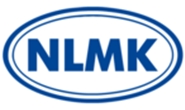Government/Policy

February 26, 2019
NLMK USA Soldiers on as it Waits for Ruling on Tariff Exclusion
Written by Tim Triplett
NLMK USA was not among the mills to learn earlier today that the Commerce Department had denied their requests for relief from the Section 232 tariffs on imported slabs. California Steel Industries and Evraz got the bad news. But NLMK USA President and CEO Robert Miller is still angry about it. “The administration, Commerce, BIS and ITA are all grossly mistaken in determining that domestic slabs are available in sufficient quantities to satisfy the needs of all of the slab re-rollers. This is a simple and basic fact of today’s domestic steel industry. This is what you get when government overextends their reach. You have unfair treatment and clear winners and losers,” Miller said.
NLMK USA has not yet seen its exclusion requests denied. Their approval, which appears less likely in light of the CSI and Evraz rulings, is of high importance to the company, Miller explained to Steel Market Update in an interview last week.
Since March 2018, when the Trump administration placed 25 percent tariffs on steel imports, NLMK USA has managed to maintain operations with a combination of foreign and domestically sourced slabs. But it is a balancing act that will be challenging for the company to sustain long term if it does not get relief from the Section 232 tariffs, Miller said.
NLMK USA is a reroller at its Pennsylvania location. The company does not create enough melt from the EAF at its Portage, Ind., mill to cover the needs of the Pennsylvania facility. With no hot end at its mill in Pennsylvania, it produces steel coils by rolling slabs from other mills. Since the tariffs were imposed, importing slabs from its Russian parent and other sources has become an expensive proposition. To date, NLMK USA has spent some $160 million on the Section 232 tariffs, and the meter is running, which puts the mill at a serious competitive disadvantage, Miller said.
NLMK USA is among the thousands of companies that have filed paperwork with the Commerce Department requesting exclusions from the tariffs. The company argues that the slabs it requires are not available domestically in sufficient quantities. It’s original six filings, based on tariff codes, eventually turned into 85 exclusion requests based on sizes and chemistries.
NLMK USA’s filings prompted objections from three domestic mills: Nucor, AK Steel and U.S. Steel. Nucor does not even make the 10-inch slabs that NLMK requires. AK Steel is “slab short.” When an incident disrupted production at one of its mills in January, AK had to go into the market to purchase slabs, so it was in no position to sell any excess to NLMK, Miller said.
U.S. Steel has sold some slabs to AK Steel, “but we can’t buy enough from them to satisfy all of our customers,” Miller said. NLMK USA buys 150,000-180,000 tons per month to keep its operations running. “U.S. Steel does not have that much available for us on a regular basis, nor do they make the sizes of steel slabs that we need to fulfill our entire customer base,” he added.
The volume U.S. Steel makes available to NLMK varies from month to month—some months zero, some months more. “They are managing their book. It is clear when the market demand is there, U.S. Steel would prefer to turn their slabs into coils and sell those into the marketplace,” Miller said.
The volume currently available to NLMK for March and April will satisfy only a portion of the company’s needs. As the market improves, Miller anticipates even less. “We will have less of an opportunity to buy from U.S. Steel. They are going to want to sell coils into the marketplace rather than sell slabs to a reroller who will turn around and make coils to compete against them.”
NLMK sources the majority of its needs from its Russian parent and mills in Brazil. “We have developed commercial relationships with mills mostly in Brazil,” Miller said, “but those mills are running up against quotas. They are near their maximum quota level for the first quarter already. That affects our ability to source slabs at a competitive price.”
Pending the outcome of its tariff exclusion requests, NLMK USA has been forced to table plans for $600 million in capital improvements to its U.S. facilities. So far, the company has been able to stave off any layoffs to its U.S. workforce of about 1,200 employees.
“We are in the market every day to buy slabs. We will continue to try to find solutions,” Miller said. “But we really are at an unfair competitive disadvantage because of this huge cost put on our business, while most of our competitors don’t have to deal with this tax on their raw materials.”







